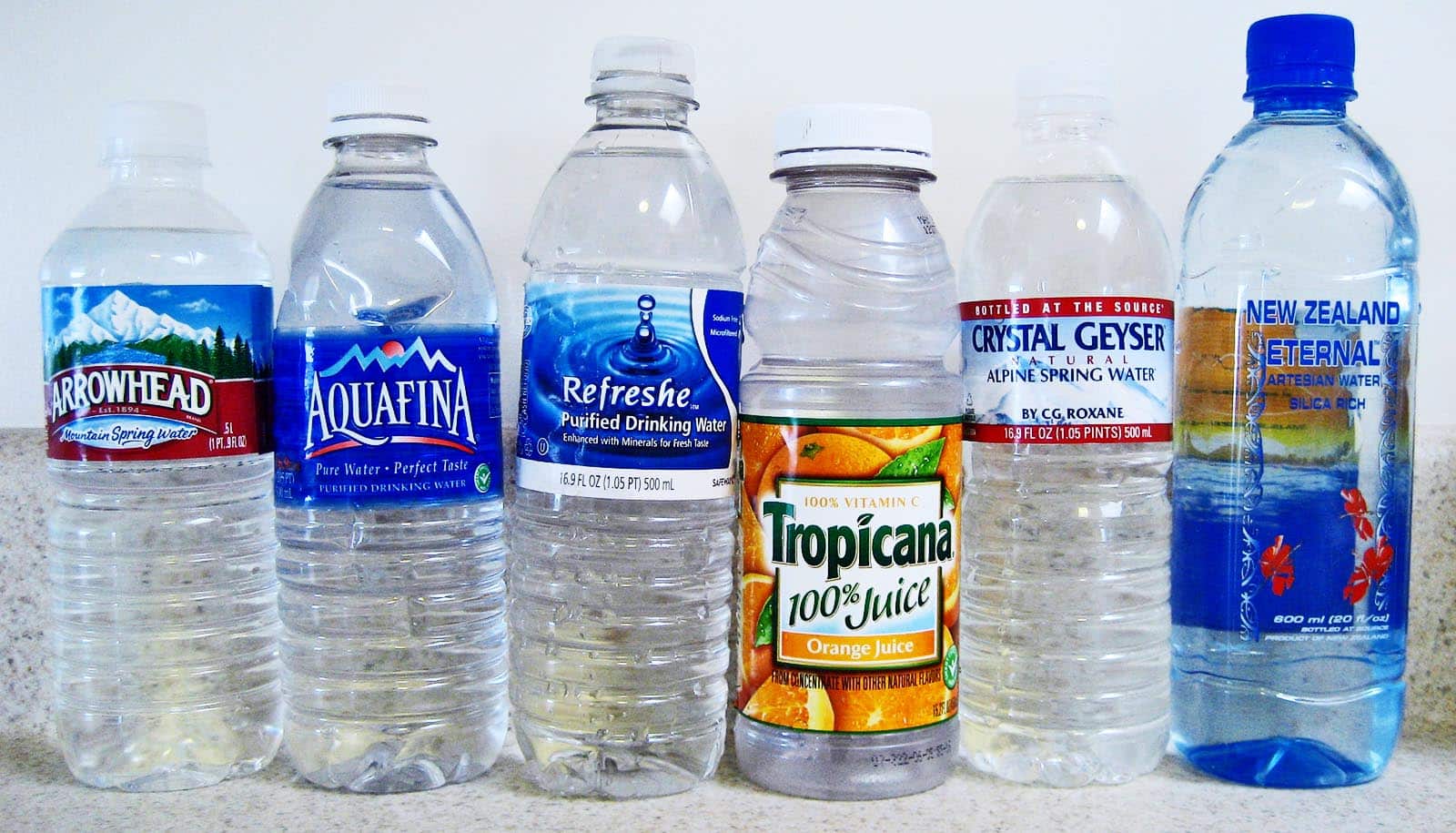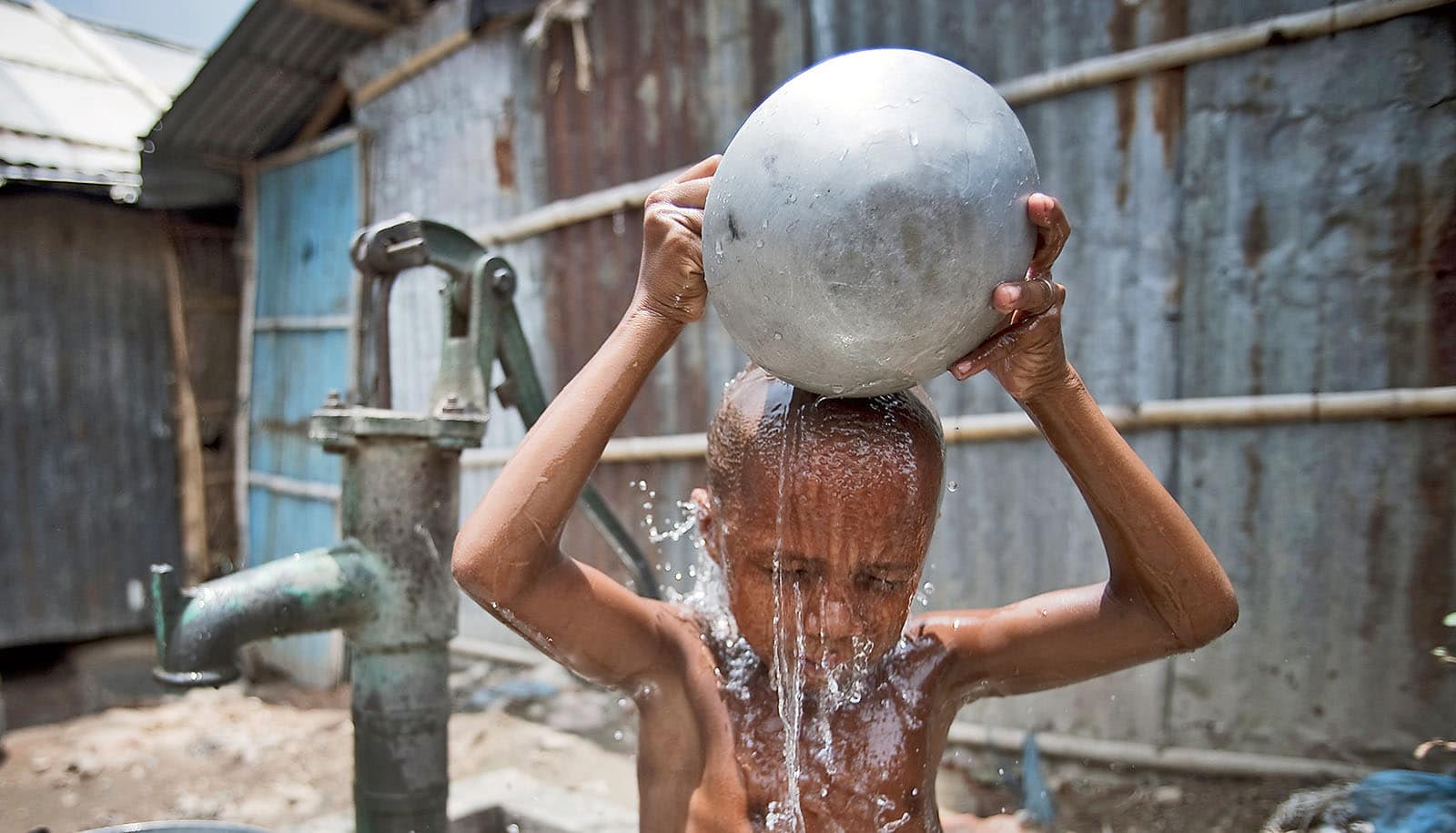New findings link food insecurity and avoiding tap water.
For nearly 61 million Americans, tap water is either unavailable or untrusted.
New research shows for the first time that, in the United States, avoiding tap water is associated with a 20% to 30% increased likelihood of experiencing food insecurity, or the inability to reliably acquire the food one needs due to limited resources.
The researchers wanted to examine whether those experiencing water insecurity—the lack of reliable access to a sufficient amount of safe water—were more likely to experience food insecurity. They utilized nationally representative data on tap water avoidance, which has been shown in previous research to be a reliable substitute measure, or proxy, for water insecurity, to better understand the relationship between water insecurity and food insecurity in the United States.
“In the United States, policy makers and the general public often assume that people in our nation have plenty of water to drink, but over the last eight to 10 years, it has become increasingly clear that is not the case. Further, the reach of water problems may extend beyond water itself; clean water is also critical for nutrition,” says Asher Rosinger, assistant professor of biobehavioral health and anthropology at Penn State and lead researcher on this project.
“Crises like the one in Flint, Michigan, have shown that some people’s water is not safe,” he continues. “Meanwhile, news coverage of the Flint crisis led to increased awareness and surveillance of water problems in other communities as well as an increase in tap water avoidance for people who may have safe tap water.”
Food insecurity affects tens of millions of people domestically and two billion people worldwide. The experience of food insecurity can range from worrying about food, to compromising on food, to hunger.
While people are generally aware of the discomfort and harm associated with hunger, there may be less awareness that food insecurity is harmful even to people who never go hungry. Prior research has shown that individuals who experience food insecurity face a host of diet-related health problems like heart disease, obesity, and declines in memory, learning, and reasoning. Food insecurity is also associated with a broad range of psychological difficulties, including depression, stress, and anxiety.
Water insecurity, as demonstrated by tap water avoidance, may exacerbate food insecurity in multiple ways.
Tap water—when available and trusted—provides a readily available, zero-sugar, and cheap beverage. Prior research has shown that people who avoid tap water are more likely to drink sugary beverages, and that those people spend more on beverages than others.
Rosinger’s prior research has shown that this diversion of funds impacts lower-income households and households of color more than those of other Americans. “If people are avoiding tap water, they often buy bottled water at an exponentially greater cost, and that takes away money they could spend on nutritious foods in their households,” he says.
Additionally, tap water is often critical to both meal preparation and clean up. If people cannot boil, wash, or steam foods because they mistrust or lack access to tap water, preparing even a simple meal may be difficult or impossible. Similarly, tap water is needed to wash dishes and any cookware after a meal. These barriers to cooking may increase people’s reliance on prepackaged food and restaurant food, which tends to be more calorie dense, less nutritious, and—in the case of restaurant food—more expensive.
“A lot of my prior research has examined why people avoid tap water,” Rosinger states. “It all comes down to trust, and trust is often complicated. The smell and taste of the water, any previous negative experiences with tap water, and the narrative about tap water in a person’s culture: All of these can influence whether people drink their tap water.”
Using data from more than 31,000 adults who participated in the nationally representative National Health and Nutrition Examination Survey, the researchers ran multiple analyses to examine the relationship between tap water avoidance and food insecurity. They used tap water avoidance as a proxy for water insecurity in three different ways. They analyzed data from people who reported that they avoid tap water in all circumstances, people who drank no tap water on the day they were surveyed, and people who drank only bottled water on the day they were surveyed. Their findings appear in Journal of the Academy of Nutrition and Dietetics.
People who avoided tap water had a 20% to 30% higher likelihood of suffering food insecurity. These results held true throughout the study, from 2005 until 2018. Additionally, the researchers observed an increase in food insecurity for people who avoided their tap water following the crisis in Flint, Michigan.
“Tap water avoidance and, therefore, water insecurity are intertwined with food insecurity, no matter how you slice the data,” explains Sera Young, associate professor of anthropology at Northwestern University and coauthor of the paper.
“We expected these phenomena to be related—we’ve seen this relationship before in low- and middle-income countries, but we were surprised by how strong and consistent the relationship seems to be even here in the United States.
“Not only do we see that food insecurity is increasing over the years in the United States, we also see that people who avoid tap water have consistently higher levels of food insecurity. This has important implications for public health nutrition policy and practice—if we care about food insecurity, we need to care about water insecurity.”
The researchers had support from the Ann Atherton Hertzler Early Career Professorship funds, Penn State’s Population Research Institute, and a Fellowship from the Carnegie Corporation.
Source: Penn State



